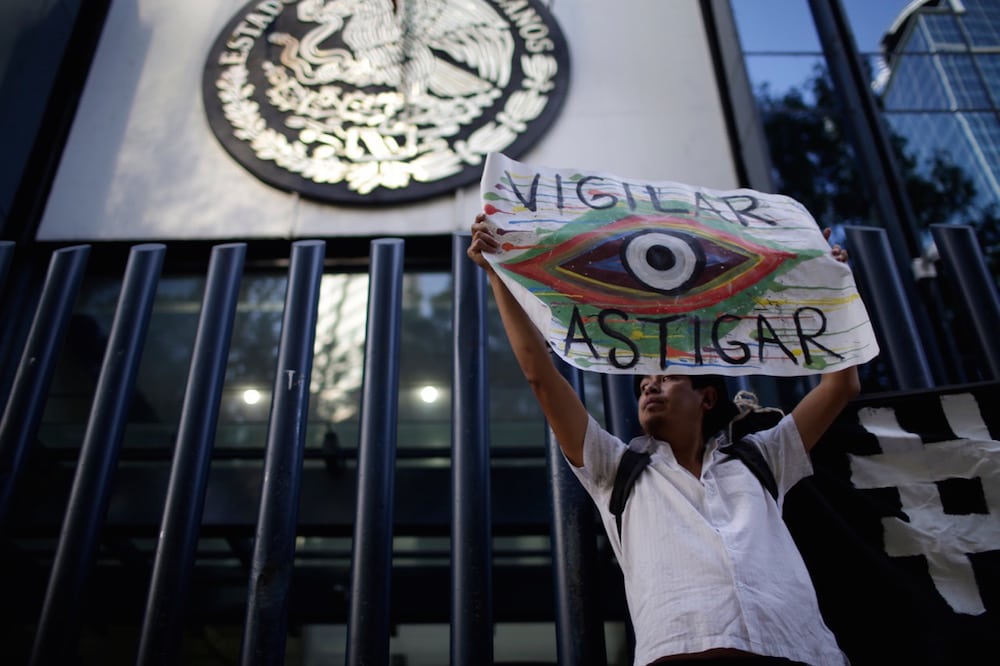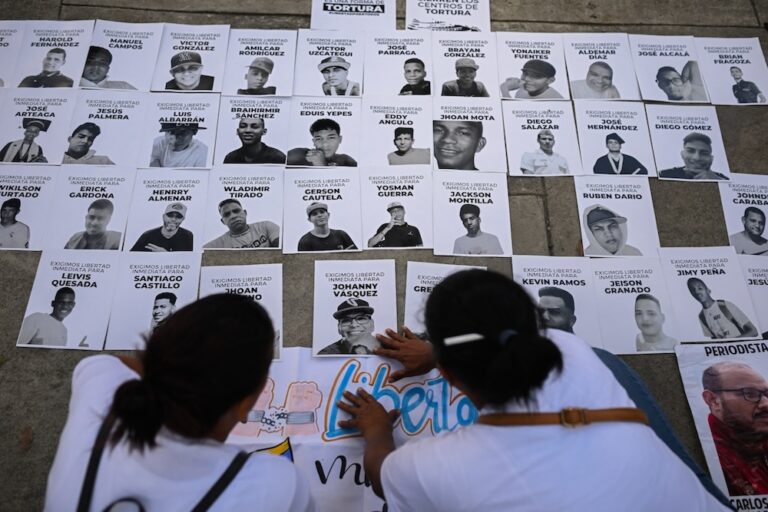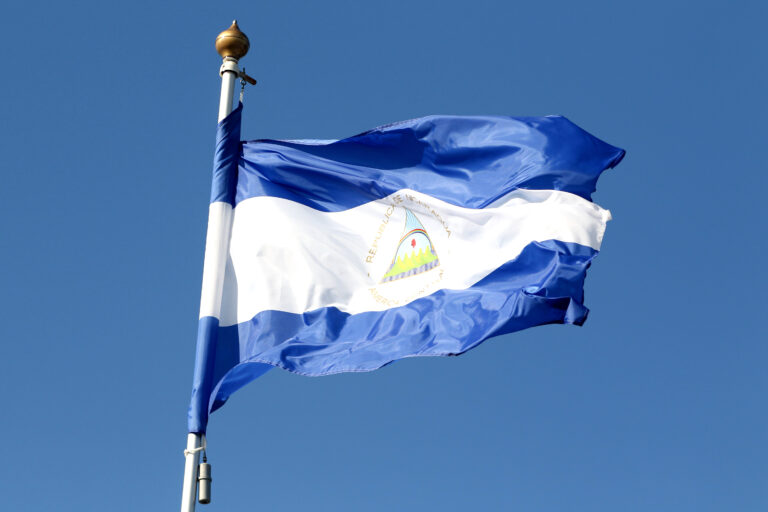July 2021 in the Americas: A free expression round up produced by IFEX's Regional Editor Paula Martins, based on IFEX member reports and news from the region.
Canada regulating the internet
In Canada, debates around Bill C-10 continue to develop. The bill’s goal is to update the Canadian broadcasting legislation to cover online streaming services such as Netflix and Spotify and bring them under the authority of the broadcasting regulator, the Canadian Radio-television and Telecommunications Commission (CRTC).
The text seems to bring some interesting provisions, for example:
- all “broadcasters” operating in Canada should disclose basic information regarding corporate ownership, revenue, expenditures, catalogue titles and subscriber numbers, as well as other data related to their operations;
- online video on demand services are required to have mandatory funding obligations similar to other pay television services – that is to say, they should reinvest a percentage of their revenue into original productions and Canadian content;
- application stores and digital platforms providing access to content would be subject to the same ‘must carry’ obligations of cable TV operators.
The Bill, however, adopts an overly-broad and open definition of ‘broadcaster’ and, in doing so, overextends the coverage of the broadcasting regulation and the mandate of the broadcasting regulatory agency. As clarified by Professor Dwayne Winseck, “the principal failure of Bill C-10 stems from its attempt to extend the concepts of broadcasting and broadcast programs to all pictures, video and audio transmitted over the internet to the public, unless the CRTC or a Cabinet directive says otherwise. This represents a reckless imperial overreach.”
The bill has been approved by the House of Commons and moved to the Senate. Civil society groups, such as IFEX member OpenMedia, questioned the proceedings at the lower house, asking for increased participation in the debates around a piece of legislation that can define the future of internet regulation in the country. They call on the Senate to give it the “attention, debate, and scrutiny it was denied by the House of Commons.”
An increase in the powers of the CRTC have been especially criticised in view of its alleged close relationship with the private sector and accusations of a possible capture by corporate interests.
Surveillance in Mexico
In 2016-17, IFEX members R3D and ARTICLE 19 Mexico and Central America documented more than 80 attacks through the use of Pegasus spyware against journalists and human rights defenders in Mexico.
In subsequent years, the organizations continued to follow the case and pointed to the fact that, through a complex network of intermediaries, the Mexican government continued to acquire such technologies. In July 2021, R3D published an overview based on a set of documents that provide evidence of the acquisition of the malware by different government agencies.
An unidentified whistleblower has provided more than 20,000 documents to Forbidden Stories: The Pegasus Project,compiled since news broke that the NSO Group software was being used to spy on civil society actors; this source is willing to appear before courts to provide testimony. The documents confirm the creation of 18 shell companies that sold NSO products to various Mexican bodies and agencies, including the National Water Commission, (Conagua), the Federal Protection Service (Seprofe), CISEN, the Federal Police, the National Migration Institute, the Ministry of Communications and Transportation (SCT) and the Navy Secretary of Mexico (Semar) and National Defense (Sedena).
According to Mexican award-winning journalist Carmen Aristegui, up to 21 July 2021, based on information from publicly known contracts, the government of former president Enrique Peña Nieto invested at least 950 million pesos in licenses to carry out government espionage.
IFEX Mexican members have stressed that urgent measures should be taken to guarantee both the non-repetition of spying practices, and the full clarification of the facts concerning the acquisition, illegal use and cover-up of the Pegasus malware use by government bodies and agencies.
In particular, they have called on the federal government to ensure an international technical assistance mechanism for the ongoing investigation, cooperation from all the agencies involved, and full transparency of Pegasus contracts. They also urge the government to design with civil society a reform agenda that prevents the abusive exercise of surveillance technologies and guarantees accountability in their acquisition and use.
The protection of the online civic space
In mid July, IFEX member Asociación por los Derechos Civiles (ADC) released a new report on the protection of online civic space – especially in view of the impact of COVID-19 – in Argentina. The document focuses on four topics:
- The criminalization of online speech
- Monitoring of posts on social networks (cyber patrolling)
- Decision-making concerning content moderation in platforms
- The online expressions of political officials and violence
ADC argues that governments should promote a broad and robust public space on the internet. This duty includes ensuring the freedom of expression of users, guaranteeing favourable conditions for the creation of online groups (freedom of association) and allowing the exercise of the right to protest on platforms (freedom of assembly).
Private companies also have obligations. Large platforms have broad powers to determine the conditions in which speech can circulate on the internet. The influence of these massive entities is even greater than that of many countries, and their actions can seriously impede the circulation of ideas and opinions. In this way, the private sector is also subject to the duty to respect human rights.
ADC is calling for the recognition and expansion of the scope of the right to protest on the Internet, highlighting the inadequacy of applying old provisions from the Criminal Code to the online space. It argues that police crime prevention measures undertaken online should be under strict scrutiny, and that independent accountability mechanisms, with citizen participation, should be created.
The organization also sets out recommendations for digital platforms. For example, it argues that civil society organizations, academia and the public in general should be meaningfully incorporated into internal processes that each platform develops to moderate content.
Access the full report here, to learn more about the other conclusions and recommendations of the study.
Colombia – Voices from the territories
During 2019-2020, Fundación Karisma carried out a series of activities to learn more about alternative communication initiatives in four regions of Southern Colombia. The project – Voces que Caminan Territorios – seeks to establish a dialogue with actors, institutions, and processes that make and support alternative communication in regions normally seen as ‘information deserts’. In the so-called ‘territories’, in what are sometimes considered ‘silence zones’, there are in fact voices with a local perspective and a strong sense of community, voices that create and share traditional knowledge.
The first publication coming out of the project shares testimonies, an account of the issues covered by the alternative communication initiatives including their use of technology, commitment to human rights, and the leadership and prominent role played by women in these outlets.
Nosotras con la Información
In July, ARTICLE 19 Mexico and Central America launched the campaign Nosotras con la Información. The campaign aims to promote the rights to information and health of Indigenous women in the Mexican regions of Chiapas, Yucatán and Oaxaca, through animated videos and radio ‘capsules’ in five indigenous languages. The materials speak, for example, of the importance of midwifery to the sexual and reproductive right of indigenous women, as well as the right of victims of sexual violence to have sufficient and complete information in their own language. The campaign argues that it is the responsibility of government institutions at all levels, as well as of the bodies that guarantee the right to information in particular, to promote proactive, transparency policies to make this information available to indigenous women.
You can check out the interesting discussions that took place during the launching event here.
The right to know what postal authorities do with your data
In another interesting example of the exercise of the right to information, IFEX member the Electronic Frontier Foundation (EFF) has filed a FoIA (Freedom of Information Act) lawsuit against the US Postal Service. The goal is to have access to records of an initiative called Internet Covert Operations Program, through which analysts at the US Postal Inspection Service (USPIS), the Postal Service’s law enforcement arm, sorted through massive amounts of data created by social media users to surveil what they were saying and sharing.
According to EFF staff, the US government has never explained the legal justifications for this surveillance. Having access to the data requested is the first step to protest against these measures.
Here are some interesting links to learn more about and follow the case:
For the complaint: https://www.eff.org/document/eff-v-usps-complaint
For more on this case: https://www.eff.org/cases/eff-v-usps-social-media-monitoring-icop
For more on social media surveillance: https://www.eff.org/issues/social-media-surveilance
Brazil – Politicians and public authorities blocking journalists in Twitter
Between September 2020 and July 2021, Brazilian IFEX member Abraji recorded 267 social media blocks carried out by public authorities against 135 journalists; Bolsonaro was responsible for 73 of them. Given this growing trend, in late July Abraji filed a precautionary lawsuit at the Brazilian Supreme Court asking for the cancelling of past blocks and the prohibition of future blocks of journalists following the Brazilian president’s Twitter account.
Abraji notes that the president uses social networks as his preferred communications channel, disseminating information about actions that pertain to his mandate, such as information on construction works, de-bureaucratization processes within the Federal Administration, monitoring of the COVID-19 pandemic, and the nomination of ministers, for example. Given public interest, limiting journalists’ access to his Twitter account should constitute a violation of the right to information guaranteed in the country’s Constitution, and characterizes an attempt by the Executive to control the sources of information used by journalists to report on government-related issues.
El Faro and Bukele
El Faro, El Salvador’s leading digital daily, has for a while now been facing “a barrage of smear campaigns, wiretaps, threats and false accusations of tax evasion by the government of President Nayib Bukele.” In 2020, for example, without offering proof, the Salvadoran president alleged that a money laundering investigation was looking into El Faro operations. In March 2021, the Supreme Court of El Salvador accepted a claim for protection by El Faro against the Ministry of Finance for allegedly using an audit to try to obtain information about its ‘editorial line, journalistic methodology, sources and ongoing investigations.’
Now, in early July, the Salvadoran government expelled one of El Faro’s editors, Daniel Lizárraga, saying that authorities could not verify the Mexican journalist’s work credentials, despite a long and successful career that included uncovering corruption scandals.
According to IFEX member the Committee to Protect Journalists (CPJ) “Salvadoran authorities’ move to deny journalist Daniel Lizárraga’s work permit and force him to leave the country sends a clear signal that critical journalism is on shaky ground in El Salvador. Lizárraga’s expulsion comes amid escalating anti-press rhetoric from President Nayib Bukele, and shows the lengths the government will go to control and obstruct reporting in the country.”
Canada – Restricting the coverage of environmental protests
Demonstrators have been protesting for months now against the logging of one of British Columbia’s last old-growth forests located in Fairy Creek, on Vancouver Island, on Pacheedaht First Nation territory. There have been repeated reports of how journalists have been impeded from covering the story.
The Canadian Association of Journalists, in partnership with a coalition of news organizations and press freedom groups, filed a lawsuit at the British Columbia Supreme Court questioning the media restrictions. On 20 July, the Court issued a decision instructing the Royal Canadian Mounted Police not to interfere with media access without a bona fide operational reason for doing so.
Brent Jolly, president of the Canadian Association of Journalists, celebrated the decision, affirming that it is “the sounding of an ominous warning bell to all law enforcement bodies across the country. We hope the days of impeding, curtailing, or interfering with journalists are, now, in the rear view mirror.”
In Brief
Uruguayan IFEX member Centro de Archivos y Acceso a la Información Pública (CAinfo) is concerned about a theft that occurred on 11 July at the home of its president, Fabian Werner, and that of his partner, María Natalia Rodríguez. A backpack containing computer equipment (two computers and an external drive) and credit and debit cards was stolen. CAinfo has asked authorities for a prompt investigation in order to clarify the situation, locate those responsible and recover the stolen equipment, which contained information relevant to the work of both journalists and that of the organization.
On 22 July 2021, the reporter and director of the digital outlet InfoGuaymas Ricardo López Domínguez was assassinated in Guaymas, State of Sonora, Mexico. Ricardo is the fourth journalist assassinated in the country in possible connection with his work in 2021. Prior to the murder, Ricardo López had been the victim of multiple digital attacks and forced internal displacement.
At the request of the defense of Swedish citizen Ola Bini, Ecuadorian Judge Yadira Proaño was removed from the case. Bini is an open-source computer programmer and digital activist; you can read more about his case here in an article by IFEX member the Electronic Frontier Foundation (EFF). Carlos Soria, Ola Bini’s lawyer, told IFEX member Fundamedios that Proaño, the investigating judge of the process, was the cause of extreme delays. In accepting the challenge against Proaño, the Judiciary will select another judge to take over the case. Soria told Fundamedios that he expects the new judge will annul the proceedings, and possibly call for a new hearing.



